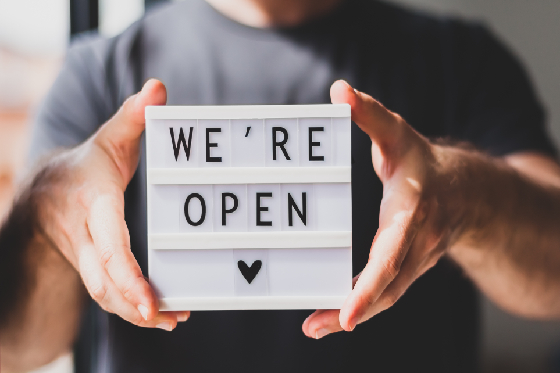After a year of unprecedented disruption, hotels are hoping the summer season will provide a much-needed boost to occupancy, rates and revenues. And if the progress in vaccine rollout can be maintained, there are encouraging signs those hopes could be realized.
Contributed by Emily Weiss, managing director and Global Travel Industry lead, Accenture, New York City
However, as we’ve all learned over the past year, nothing with COVID-19 can be taken for granted. What’s more, the ripple effects of the pandemic are certain to be felt long after the pandemic subsides.
A tipping point in consumer behavior
Accenture’s consumer research shows the scale of the changes the pandemic has catalyzed. A huge 95% of consumers say they’ve made at least one lifestyle change they expect to be permanent—such as switching to ecommerce, shopping locally, working from home, changing travel patterns, and so on.
For hotels, one of the biggest changes – and challenges – is the impact on business travel. In Accenture’s survey nearly half of consumers (46%) said they will currently either not travel at all for work or will reduce their business travel by half following the pandemic. Their employers, too, have come to realize that much of their business can be done just as effectively online.
There’s no doubt the continued decline in business revenue will hit hotels hard in the short term, especially when you consider how important this revenue stream has historically been to the industry. The reality is the travel market is now principally a leisure market—and a structurally smaller market.
The good news? We’ve already seen how the behavioral changes forced on people by the pandemic have sparked a wave of innovation from many consumer-facing businesses, who have responded by repurposing their physical spaces or exploring new business models.
Look at how British brewer Brewdog shifted to hand sanitizer production, provided virtual bars and Drive-Thrus, and created co-working spaces for home workers. Some hotels transformed their guest rooms into alternative spaces such as private pop-up restaurants. It’s exactly this kind of creative pragmatism that hotels need right now. Here are some key areas to consider.

Meet consumer needs for “third spaces”
One interesting finding from Accenture’s research is that a huge majority (79%) of remote workers say they’d like to work occasionally from a “third space” – somewhere other than their home or usual place of employment. Even more interesting is that more than half said they’d be willing to pay up to US$100 a month to do so.
It’s not hard to see why, especially where employees lack a dedicated home workspace or are frequently interrupted by family life. And hotels are ideally placed to capitalize on this need, repurposing unoccupied rooms or other spaces as temporary work or meeting locations. We saw some experimentation with this idea during the pandemic, but with a bit of creative thinking it could be scaled up as a permanent revenue stream.
Be creative about contactless interactions
Hotels must adapt to the fact that contactless is now an even greater part of hospitality – and an expectation. This does not simply mean kiosks, it means using the cloud to enable fully contactless interactions, from check-in to check-out and everything in between.
Hotels also need to think creatively about contactless health and safety in the room itself, including the use of voice interfaces and hands-free equipment for curtains, lights, TVs, soap dispensers, and so on.
Re-center marketing around leisure
For many hotels, the leisure market has been a secondary focus until now. So, re-centering around leisure will require a fundamental rethink of many aspects of the business, especially the pre-travel and post-travel phases of the customer journey.
In particular, hotels will need to get much more active in the early inspiration marketing phase, using social media and aspirational content to spark and capture that initial desire to travel. Global hotel brands will also need to ensure genuine local flexibility in their marketing strategies – much more important in the leisure market – and scale up their abilities to deliver personalized media and omnichannel content in multiple markets around the clock.
Rethink loyalty
Another consequence of the pivot to leisure is the need to update the loyalty program. Points-per-stay simply don’t make as much sense for leisure travelers since no one but a select few makes enough hotel stays each year to make a difference. Instead, the program needs to be centered around experiences and other kinds of emotional or trust-based rewards.
We’re already seeing some interesting moves in this space. For example, Marriott has teamed with Uber so its members can benefit when they take an Uber ride or use Uber Eats. This speaks to an important broader point – that partnerships, even unconventional ones, can be a powerful way of sparking innovation in customer engagement.
The key point is that, with ongoing uncertainty about what the future holds, hotels will need to be pragmatic, creative and agile, making better use of their data to respond quickly and innovatively to a fast-changing set of consumer needs and expectations. There are huge opportunities for those who can get it right.
